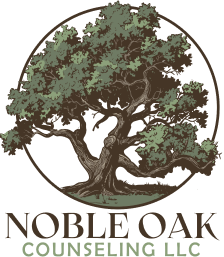Childhood is a foundational period that shapes our worldview, self-concept, and relationships. While positive experiences lay a framework of trust and security, difficult or traumatic experiences can have lasting effects on one’s emotional health and future relationships. For those affected by childhood trauma, understanding how past experiences can influence current relationship dynamics is crucial. Awareness and support can make a transformative difference in healing from these past wounds and fostering healthier relationships.
In this post, we’ll explore what childhood trauma is, how it manifests in adult relationships, and ways to seek support if you or a loved one are dealing with its impact.
What Is Childhood Trauma?
Childhood trauma refers to emotionally or physically distressing experiences that significantly disrupt a child’s sense of safety or security. Traumatic experiences can include physical, emotional, or sexual abuse; neglect; the sudden loss of a caregiver; family violence; and prolonged exposure to instability, such as poverty or addiction.
When children encounter trauma, their developing brains adapt to help them survive these overwhelming situations. However, these adaptations, such as heightened vigilance or suppressed emotions, can become long-term patterns that carry over into adulthood, shaping behavior and relationships.
Signs of Childhood Trauma in Adult Relationships
The effects of childhood trauma often linger, influencing how individuals connect with others, handle conflict, and perceive intimacy. Though everyone’s experiences and reactions differ, here are common signs that childhood trauma may be affecting adult relationships:
- Fear of Abandonment People who experienced loss or inconsistent caregiving as children may carry a deep-seated fear of abandonment, leading to behaviors that either cling to or push others away. This fear can make it challenging to maintain healthy boundaries, leading to dependency or anxiety in relationships.
- Trust Issues Trauma involving betrayal, abuse, or neglect can make it hard for individuals to trust others fully. In relationships, this can manifest as skepticism toward a partner’s intentions, questioning their loyalty, or interpreting harmless actions as deceitful. Trust issues can lead to guardedness, distancing, and difficulty sharing emotions openly.
- Emotional Dysregulation Childhood trauma can alter how the brain processes stress, making it hard for adults to manage emotions. In relationships, emotional dysregulation may show up as intense reactions to minor conflicts, feeling overwhelmed by emotions, or “shutting down” in times of stress. Without tools to regulate emotions, misunderstandings and conflicts can quickly escalate.
- Low Self-Esteem or Self-Worth Trauma can leave lasting impressions of worthlessness or inadequacy. In adult relationships, these feelings may cause someone to believe they are unworthy of love, leading to self-sabotage, settling for unhealthy dynamics, or relying heavily on external validation from their partner.
- Difficulty with Intimacy and Vulnerability Trauma survivors may struggle with emotional intimacy, finding it challenging to let their guard down or trust someone enough to be vulnerable. They may avoid getting close to others, fearing rejection, hurt, or betrayal. When intimacy is avoided, relationships can become distant and superficial, limiting the potential for a fulfilling connection.
- Hypervigilance and Overreactions Hypervigilance—a heightened sense of alertness often developed as a survival strategy in childhood trauma—can carry over into adult relationships, leading to overreactions to potential threats, real or perceived. This often shows up as hypersensitivity to criticism, interpreting harmless actions as attacks, or constant monitoring of a partner’s actions.
How Childhood Trauma Shapes Attachment Styles
Attachment styles, developed in childhood, are patterns of relating to others that impact adult relationships. People with a secure attachment style, often raised in stable, supportive environments, can usually form healthy relationships. However, trauma can lead to insecure attachment styles, which present distinct challenges:
- Anxious Attachment: Anxiously attached individuals tend to crave closeness but often fear abandonment. This may result in dependency, jealousy, and efforts to maintain a partner’s affection through constant reassurance-seeking.
- Avoidant Attachment: Avoidantly attached individuals value independence and self-reliance, sometimes to the point of pushing others away. They may avoid closeness, feel uncomfortable with emotional intimacy, and have difficulty expressing their feelings.
- Disorganized Attachment: Disorganized attachment often stems from unpredictable or frightening experiences in childhood. Adults with this attachment style may have conflicting desires for closeness and distance, making relationships feel turbulent and unstable.
Understanding one’s attachment style can provide valuable insights into relationship behaviors and patterns, offering a foundation for growth and healing.
Healing from Childhood Trauma and Improving Relationships
Recovering from childhood trauma is a journey, and healthy relationships are possible with the right support and guidance. Here are some approaches that can help:
- Therapy and Counseling Therapy offers a safe space to explore past trauma, recognize its impact, and build healthier patterns for the future. Trauma-focused therapies, such as Trauma-Focused Cognitive Behavioral Therapy (TF-CBT), Eye Movement Desensitization and Reprocessing (EMDR), and Attachment-Based Therapy, can be particularly effective in addressing trauma’s roots. Working with a licensed therapist can help you gain tools to navigate relationships more positively and reduce the hold that trauma has on your interactions.
- Developing Self-Compassion Survivors of childhood trauma often struggle with self-criticism or guilt. Learning self-compassion through mindfulness or therapy can help counteract these tendencies, allowing individuals to treat themselves with kindness rather than judgment. Self-compassion creates a foundation for healthier self-esteem and fosters more secure relationships.
- Building Emotional Regulation Skills Practicing mindfulness, meditation, and relaxation techniques can help individuals regulate their emotions more effectively, reducing overreactions and improving communication with partners. Emotion regulation skills are invaluable in de-escalating conflicts and preventing trauma-driven responses.
- Setting Boundaries Healthy boundaries are essential in any relationship, but they can be especially crucial for trauma survivors. Boundaries ensure that relationships remain safe and respectful. Learning to identify and express needs is a critical step in developing healthier connections with others.
- Rewiring Negative Beliefs Trauma can leave behind negative beliefs about oneself and others that shape relationship dynamics. Cognitive Behavioral Therapy (CBT) and other therapeutic techniques can help individuals recognize these thought patterns and replace them with healthier perspectives, fostering better relationships and self-worth.
Seeking Support for Trauma and Relationship Healing
Childhood trauma can impact adult relationships, but with support and effort, healing is possible. Therapy can help uncover the underlying causes of trauma responses, empower individuals with coping strategies, and guide them toward building trust and security in relationships.
At Noble Oak Counseling, I understand the profound impact that childhood trauma can have on adult relationships, and offer compassionate, trauma-informed support to help you work through these challenges. As a licensed therapist specializing in trauma and attachment-based approaches, I am here to support you in reclaiming control, building resilience, and creating healthier relationship dynamics. If you’re ready to take the first step toward healing, reach out to schedule a consultation today.
Final Thoughts
Trauma does not have to define your relationships. By recognizing its effects and seeking support, you can build the skills needed to create fulfilling, meaningful connections. Remember, reaching out for help is a courageous step toward a brighter future.


